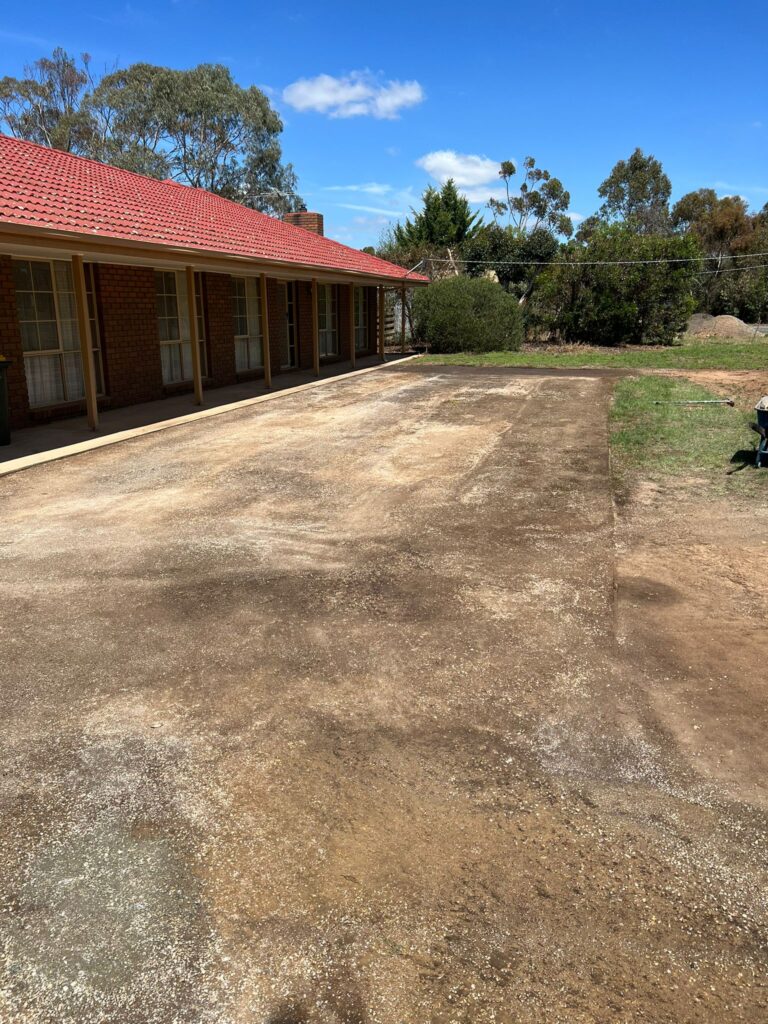Cracking is one of the earliest and most visible signs of deterioration in asphalt surfaces. Whether you’re managing a driveway, private access road, or commercial pavement, spotting and addressing cracks promptly is key to preventing more extensive and costly damage. At Dubbo Road Tek, we’ve worked with clients across Dubbo, NSW to identify and resolve asphalt issues before they escalate.
Understanding what causes cracks, what different types of cracks mean, and when to take action can help you protect your surface investment and extend its lifespan.
What Causes Asphalt to Crack?
Asphalt is a flexible material, but it’s still susceptible to damage from environmental and structural stresses. Over time, several factors can contribute to surface cracking:
- Thermal expansion and contraction from temperature changes
- Water infiltration that weakens the base layer
- Heavy vehicle loads that exceed surface strength
- UV exposure which dries out and ages the bitumen
- Poor initial installation or inadequate base preparation
In Dubbo’s climate, where warm summers and cooler winters create frequent temperature swings, asphalt surfaces are particularly vulnerable to expansion and contraction stress.
Common Types of Asphalt Cracks and What They Indicate
Each type of crack tells a story about what’s happening beneath the surface. Knowing how to recognise and interpret them helps you determine the best course of action.
1. Alligator Cracking
- Looks like a network of interconnected cracks—similar to reptile skin
- Typically caused by fatigue failure due to poor base support or overloading
- Indicates structural damage that often requires full-depth repair
2. Longitudinal Cracking
- Runs parallel to the direction of traffic
- Usually a result of pavement shrinkage or poor joint construction
- Early intervention with sealing can prevent further deterioration
3. Transverse Cracking
- Runs perpendicular to the traffic direction
- Caused by temperature fluctuations and asphalt shrinkage
- Often non-structural at first, but can lead to water ingress if not sealed
4. Edge Cracking
- Appears near the edge of the pavement
- Caused by lack of support at the shoulder or poor drainage
- May require shoulder strengthening or drainage improvement in addition to crack repair
5. Block Cracking
- Forms large rectangular patterns, often over older or oxidised surfaces
- Indicates the asphalt has lost flexibility
- Can usually be corrected with resurfacing or sealing if caught early
When Should You Act?
Timely action is critical to stop small issues from turning into major failures. Here’s when to act based on what you see:
Immediate Action:
- Cracks wider than 3mm (as a general rule)
- Any sign of alligator cracking or surface sinking
- Potholes forming near existing cracks
- Water consistently pooling in or around cracks
Short-Term Monitoring:
- Small hairline cracks that are stable
- Minor edge cracks not growing in size
- Discolouration or oxidation without structural damage
If you’re unsure whether a crack needs immediate repair, it’s best to have it professionally assessed. At Dubbo Road Tek, we provide detailed site inspections to help clients make informed decisions.
How We Repair Asphalt Cracks
Our approach at Dubbo Road Tek is tailored to the type and severity of cracking:
- Crack Sealing for linear, non-structural cracks to prevent moisture ingress
- Patching for localised alligator or pothole-related damage
- Overlay or resurfacing for older pavements with widespread block or fatigue cracking
- Full-depth reconstruction where structural failure has compromised the base
We also offer preventative maintenance programs to monitor and seal cracks early, which is particularly useful for larger assets or commercial surfaces in Dubbo.
How to Prevent Future Cracking
While no asphalt surface is immune to cracking, several steps can help reduce its frequency and severity:
- Ensure proper installation with adequate base preparation and compaction
- Maintain drainage systems to divert water away from the pavement
- Apply protective seal coats every few years to extend surface flexibility
- Avoid excessive loads, especially on light-duty surfaces
- Schedule regular inspections to catch early warning signs
Why Choose Dubbo Road Tek?
Dubbo Road Tek brings local experience, high-quality workmanship, and practical knowledge of Dubbo’s climate and ground conditions to every job. Our team is committed to delivering bitumen and asphalt surfacing that lasts, with tailored solutions based on accurate site assessments and long-term performance.
We don’t just fix cracks—we prevent them from coming back.
Conclusion
Asphalt cracking is an early warning sign that should never be ignored. Whether it’s a minor surface line or a web of structural fatigue, the sooner you act, the more you’ll save in the long run. Understanding what each type of crack means and knowing when to act helps you maintain a safe, functional surface.
If you’ve noticed cracking on your driveway, car park, or access road in Dubbo, NSW, contact Dubbo Road Tek. Our expert team can assess the situation and provide a reliable, cost-effective repair plan to protect your investment and restore surface integrity.
Call us on: 02 5839 3400
Click here to find out more about Dubbo Road Tek
Click here to complete our contact form and see how we can help with your Asphalt and Bitumen Surfacing needs.

